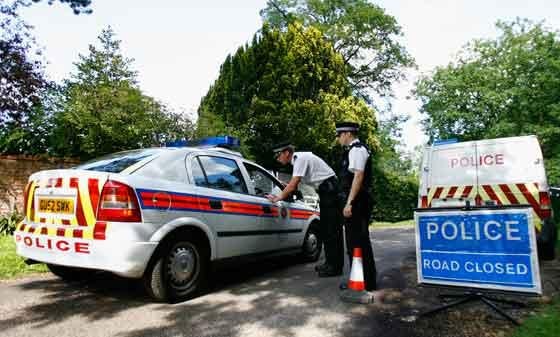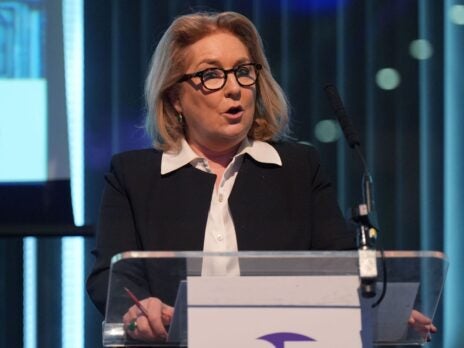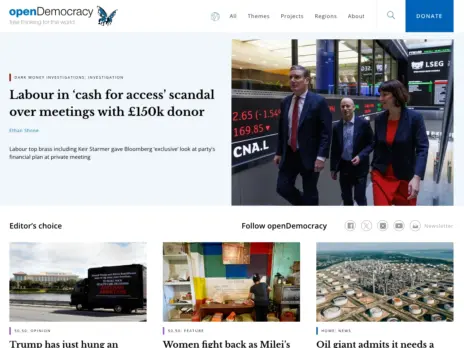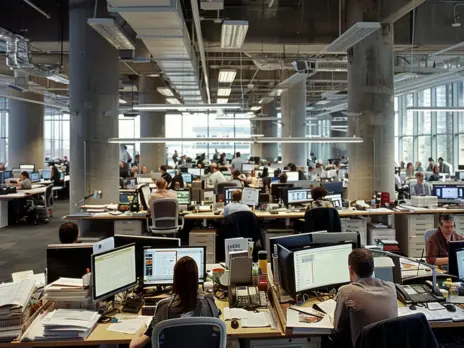
Members of the Metropolitan Police Forward Intelligence Team were photographed filming members of the press as they covered the anti-Bush demonstrations in London on 15 June.
This latest example of police surveillance of journalists comes after the National Union of Journalists wrote to the Home Secretary, Jacqui Smith, expressing its concern that a growing number of journalists and photographers in recent months had been filmed and photographed by the FIT and their details recorded.
Responsible for providing intelligence to police units about people who might be involved in public order offences, FIT issues police with ‘spotters cards’that include mugshots.
Through a data protection request, the NUJ has discovered that details of bona fide journalists are being held on a database along with photographic reference numbers.
Although photographers claim they have collected evidence of the FIT camera operators filming them, the Metropolitan Police has denied that they target ‘legitimate’photographers.
Media role
Commander Bob Broadhurst, in charge of public order policing in the Met, issued a statement saying he had ‘personally met various representatives from bodies who represent the interests of photographers and have sought to protect their rights to do their job through educating colleagues within the MPS. Before every operation, all our staff are briefed as to the rights and the role of the media and wherever operationally possible to facilitate them.”
Photojournalist Marc Vallée said he was surprised by Commander Broadhurst’s denial that the Forward Intelligence Team targets legitimate photographers. ‘The NUJ has plenty of evidence to the contrary and has offered to meet Jacqui Smith to seek assurances that the Government will do all it can to ensure professional journalists are not targeted in this way.”
The filming of photographers at the anti-war demonstrations held during the US president’s farewell tour of London will mean the NUJ will continue to push for answers to questions it posed to the Home Secretary as to whether the FIT has been issued with instructions to photograph and catalogue journalists and if so on whose authority it has been asked to do so.
‘To be honest, I can’t understand the rationale of this,’said NUJ general secretary Jeremy Dear. ‘The Metropolitan Police seems to be saying that it is not targeting journalists and yet the same people – with press cards around their necks, with professional cameras, who they know by first name because they see them on enough protests and demonstrations – they are filming openly and blatantly, taking notes about where they move and their activities.’
The NUJ, in its letter, asked the Met to explain what information being held on journalists was being used for and who has access to the databases.
Database
Dear said the ‘most logical reason’was that police were building up a database of people taking photographs at a demonstration so that if a public order issue arises they can target those journalists to obtain their material.
‘If that is the case it puts them in a very worrying position, because demonstrators could see them as agents of the police. It puts them at substantial risk of being threatened by demonstrators who may try and seize that information,’said Dear.
He added that reporters and photographers had been intimidated by the surveillance, to the extent that some of them had left the scene of protests or demonstrations.
‘If it was just this one thing happening it would be bad enough, but it comes in the context of restrictions of access, of individual photographers being either physically assaulted or verbally intimidated.
‘It comes on the back of people being told they’re not allowed to take photographs in particular areas and a whole lot of other restrictions. In that context it is worrying that media freedom is being restricted.”
A Home Office spokesman confirmed that it had received the letter.
Email pged@pressgazette.co.uk to point out mistakes, provide story tips or send in a letter for publication on our "Letters Page" blog






